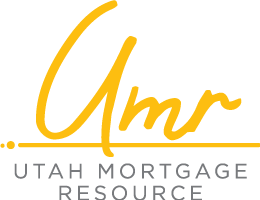Forget about what you heard.
Ignore most of what other big websites tell you – their end goal is not to inform you, but to capture and sell your personal information.
Yes, mortgage loans have closing costs. No, you don’t have to pay them out of pocket. In fact, most borrowers don’t bring anything to the closing table except their required downpayment.
How, you may ask? It’s simple.
In exchange for a slightly higher interest rate, most lenders will cover your closing costs. Seller concessions (known as seller paid closing costs) can also be used if agreed upon with your purchase offer – but they are harder to obtain in a seller’s market.
What mortgage closing costs should I expect?
Once you submit a complete loan application with a mortgage company, you will receive a set of initial disclosures. Look for a document called the Loan Estimate. It will outline your loan terms, and estimated fees.
The cash to close won’t be accurate, ignore it. Pay attention to your loan amount, what your interest rate quote is, and whether it’s locked or not. Page 2 of the Loan Estimate has all the good stuff.
The mortgage closing costs you should expect to see listed:
Underwriting (or administration) fee – this can be as low as a few hundred dollars, or as high as $1,000, but not more. Sometimes it’s included in the pricing of the interest rate, so you might not see it at all.
Processing fee – if present, it should be under $700. Sometimes it’s included in the pricing of the interest rate
Appraisal fee – most residential appraisal fees are in the $600 price range. A bit more if the property is a multi unit, or an investment property. Or if it’s located in the middle of nowhere with hardly any comparables, which is more work for the appraiser. In most cases, this is the only fee that you should ever pay up front. So budget accordingly.
Appraisal Final Inspection – $150 to $200 if the property is a new construction that requires a final inspection, or if repairs need to be performed before the property is eligible for financing (common on FHA loans).
Credit Report – this is generally in the $50 price range, but can be quoted as high as $100. Anything over is excessive, and if any mortgage company tries to charge you for a re-score or a quick score that they did on your behalf, it is illegal.
Lender’s title insurance – dependent on the title company your use, and the transaction type, as well as the purchase price/loan amount. Some title companies have online calculators that you can use to get an accurate estimate. Meridian Title is such a company, and you can access their online fee calculator here.
Lender’s title insurance is required on all mortgage loans, so beware of mortgage companies that don’t include it in their quote. A good explanation of what the lender’s title insurance is can be found on the CFPB’s website.
Please note that the Utah Real Estate Purchase Contract will insure by default that the seller will pay for an Owner’s Title Policy for you. This cost will show up as an “optional” fee on your Loan Estimate, but won’t come out of your pocket unless specifically agreed upon. Federal regulation requires that it is disclosed because in other states the seller might not be required to pay for it.
Mobile Notary fee – might be included with the title fees if you require a mobile notary to come up to your house with the closing documents. This is more common in rural areas where a title company might not be close by. The cost should be between $100 – $200 or so.
Recording fee – under $100. Most counties charge about $54 to record the new deed.
Homeowner’s insurance premium – 1 full year. This is also known as hazard insurance. For most people, it will cost between $500 to $1,000, depending on their insurance company of choice. Shop around, starting with your auto insurance provider, as bundling the two policies can result in significant savings.
If your property is a condo, an HO-6 policy might be required. This is significantly cheaper, and should cost in the $240 – $360/year price range, depending on how much coverage you choose.
Flood insurance – will be required if your property is located in a flood zone, and can be as expensive as your homeowner’s policy, or more.
Prepaid interest – this is charged per the amount or days left in the month at the time of your new loan funding. It can be as low as a single day of interest, or as high as a full month.
Initial escrow setup – this will generally have 2 to 3 months of homeowner’s insurance, and anywhere from 2-13 months worth of property taxes.
It sounds like a lot, but don’t worry.
If you’re purchasing a new home, the seller will credit you at closing for the months they’ve occupied the property. Your lender will escrow those funds, and will be responsible for paying your full property taxes once they come due in November.
If you’re refinancing a current home, the new lender has to make sure there are enough funds in your escrow account once the property tax bill comes due. So if your refinance takes place in August, the lender will escrow 8 + 2 months of property taxes, for a total of 10 months. The 8 months will cover your up to date tax that has accumulated, while the 2 extra months will act as a cushion. Your old lender will refund you any amount that is currently in your escrow account, and you will be able to use that as you please (but it generally takes 2 to 3 weeks to process that refund once your new loan is funded and your old one is paid off).
Other fees you might see listed:
Up Front Mortgage Insurance Fee, Guarantee Fee, or Funding Fee – these are common for FHA, VA and USDA loans. These fees are mandatory, and go into a pool that pays out the lenders in case of borrower default. They can also be rolled into your new loan amount, so even if they’re listed as a closing cost, you won’t actually have to pay them out of pocket. This is one of the main reasons why I said your initial Loan Estimate cash to close will probably not be accurate.
Conventional loans might also have an up front mortgage insurance premium listed if you are making a down payment that is less that 20%, and don’t want to have a monthly private mortgage insurance premium. A choice that doesn’t necessarily make a lot of sense in an appreciating market, but that can be necessary to lower the debt to income. You might want to read my blog post about removing the private mortgage insurance ahead of schedule.
Pest inspection fee – $150 or so
Verification of Employment (VOE) fee – as low as $50, and as high as $200 depending on how many jobs need to be verified, and which third party verification system the employer uses. The Work Number is a common one for larger companies that don’t want to waste their HR department’s time with employment verifications.
HOA transfer (or reinvestment) fee – can be as low as $75, or as high as a few hundred dollars. Make sure to do your due diligence and find out how much it is if purchasing a condo or PUD that is likely to have one.
All in all, if you need a ballpark number, most people’s closing costs average out to about $5,500 or so.
What mortgage closing costs should I question?
Never EVER pay an application fee. The only mortgage companies that will charge you one are the ones that have awful pricing in the first place, and that want to make sure you’re committed and you won’t shop them around. Same for a rate lock fee – there is no such thing.
Discount points or a loan origination fee may be acceptable in certain circumstances, but not usually, and not if they’re significant.
For example, a borrower might have $5,000 in seller paid closing costs that they negotiated on their purchase contract. The total above closing costs might only add up to $4,000, so I will need to lower his or her interest rate to a rate that has a cost of around $1,000, so I can use all that seller credit (since any unused credit would just go back to the seller). This will show up as a $1,000 or so worth of discount points or origination fee on the Loan Estimate.
Some people are adamant about getting the lowest interest rate, and they have no problem paying discount points to get it. That’s absolutely fine – as long as you’ve been presented with the different interest rate options, and you’ve been explained the difference.
If a lower interest rate saves you $60 each month, but the cost for that rate is $4,500, it will take you over 6 years to actually start seeing the savings. So it’s not really worth it unless you intend to keep the property longer than that. Statistically speaking, most people move or refinance every 5 to 7 years. It is illegal for a mortgage loan officer’s compensation to be based on a borrower’s interest rate, so take this as the objective advice it is.
How do I avoid paying for mortgage closing costs?
If you don’t have seller paid closing costs, and don’t have the cash to pay for closing costs out of pocket, ask your mortgage loan officer for a “no cost loan”.
This is really a marketing gimmick, but your mortgage loan officer should present you with a few different interest rates, and explain how much lender credit is associated with each rate. I personally like to offer 3 interest rate choices – the par rate that has no credit and no cost, and the next 2 interest rates up, where the highest covers most or all of the closing costs.
The lender credit for the interest rate will be shown on page 2 of your Loan Estimate, on line J – Lender credits.
This credit isn’t guaranteed until your interest rate is locked in, so if you love it, make sure you lock it in. Otherwise, market changes can affect the lender credit and not always in a good way. However, significant price changes in a short period of time are quite rare – beware of quotes changing on you over night.
I hope this article was helpful, but you still have questions, or need a second opinion, please feel free to reach out to me by email at [email protected]. You can also text me your questions at 801-473-3154, or message me on Facebook.
Apply online now to get started with a loan application, or if you need a Pre-Qualification Letter to make an offer on a home.

